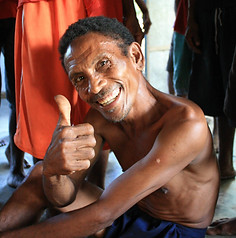SOTAGPS
Aeta, Alunan
Global PerspectiveS (GPS) happened a year after OSL and it was a follow up from what we have learnt during our OSL trip. We planned four projects that attempted to respond to the needs of the Maporac community. We were also in homestays, staying with families in the village.
Apart from Maporac, we also stayed with, or visited the Aeta communities from Sitler, Malabatay, and Alunan. If you’d like to read an account of the trip from the perspective one of the SOTA students who went on the trip, you can read Stephanie’s thoughts here.
01/
The Library
One issue we, the SOTA students, noticed was that even though the community had a ‘library’, the range of books stocked in the library was very small and a lot of books in the library were far too advanced (e.g. Shakespeare or Engineering textbooks in English) for anyone in the community to actually use them. We set out to restock, reorganise, and clean the space. We added mostly children’s books and fiction (in English or Tagalog), which we got from a book donation drive we ran or bought with the funds we raised. We wanted to cover broader span of reading ability, focusing particularly on books for children.
02/
Social Enquiry
We also made social enquiry a focus, interviewing each family in the village about their family trees, backgrounds of their families, the jobs that family members undertook etc. Through this we managed to get a sense of how the Aeta make a living in their present circumstances, of how their family structures work and of the economic situation of each family.
03/
Garden/ Nursery
We were told the elders in the village wanted an area to plant and harvest certain medicinal or culturally significant plants and herbs found in their ancestral domain. These were to be used in daily life, and also made it easier for the youth to learn about and access traditional Aeta culture. We decided to build a nursery together with the community members where plants from their ancestral domain could be transplanted to the lowland and grown within the village. Chieftan Dimain named it Kainomayan.
04/
Documentation
We had a documentation team that aimed to focus on food and agricultural practices, which not only tied in strongly to Aeta identity as a whole but was also chosen as a theme because we believed it was a universal experience. We conducted interviews and documented their practices from cooking to farming. You can read information we gathered about agricultural practices here.
PROFILES
We prepared a little write-up on the lovely people of the Aeta Maporac community - let's get to know them!
